Sleep is a fundamental aspect of human biology. It is essential for us to maintain optimal physical, mental, and emotional well-being.
It is during sleep that the body undergoes crucial processes of repair, restoration, including consolidation of memory.
Adequate sleep is vital for cognitive function, emotional regulation, immune system health, and overall longevity.
When we sleep, our bodies enter different stages of sleep, each serving a unique purpose in ensuring our health and vitality.
A Brief Overview of Common Sleep Disorders
Despite the importance of sleep, many individuals, especially men, struggle with various sleep disorders that disrupt their ability to obtain restorative rest.
Some of the most common sleep disorders include:
- Insomnia: difficulty falling asleep or staying asleep, which leads to chronic sleep deprivation.
- Sleep apnea A condition characterized by pauses in breathing during sleep, often accompanied by loud snoring and daytime fatigue.
- Restless Leg Syndrome (RLS): is a neurological disorder that causes uncomfortable sensations in the legs, leading to an irresistible urge to move them, often disrupting sleep.
- Narcolepsy: A neurological disorder that causes excessive daytime sleepiness and sudden bouts of uncontrollable sleep attacks.
- Sleepwalking and Sleep Talking: Parasomnias characterized by engaging in activities or speaking during sleep, typically during non-REM (rapid Eye Movement) sleep stages.
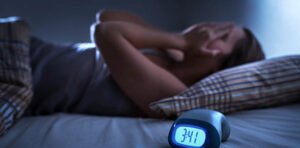
-
“Sleep Disorders Significantly Impact Men’s Health in Various Ways.”
When it comes to health challenges, insomnia stands out as a widespread issue. It impacts millions of individuals annually.
According to data from the American Sleep Association:
- Close to 70 million Americans grapple with some form of sleep disorder.
- Short-term insomnia affects about 30% of adults, making it the most prevalent sleep disorder.
- Approximately 10% of individuals struggle with persistent insomnia.
- Nearly 40% of people admit to unintentionally falling asleep during daytime hours.
- Around 5% acknowledge falling asleep while behind the wheel.
Sleep Disorders? What is it?
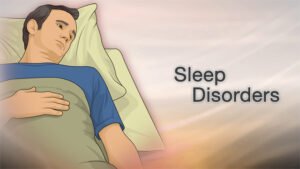
Imagine sleep as a well-rehearsed dance routine that you do with your body every night.
Now, imagine your best friend bumped-in during one of those dance sessions.
In an attempt to join you, he ends up ruining the show with his awful dance moves and even trips over the others in the room – messing up the rhythm.
That’s what a sleep disorder is—it disrupts the smooth flow of your body’s night routine.
It leaves you feeling like you’ve been dragged through a hedge backward in the morning.
Types of Sleep Disorders
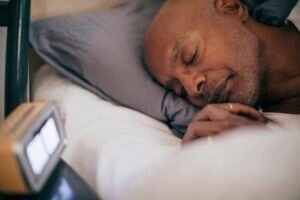
-
Insomnia:
This is like when your brain decides to throw an impromptu party just when you get yourself into bed.
You find yourself tossing and turning, unable to shut down the mental DJ playing all your worries and to-do lists – quite troubling!
-
Sleep Apnea:
Ever had a partner who snores so loudly it could wake the neighbours? Sleep apnea takes that to a whole new level.
Sleep apnea is a condition where your breathing stops and starts repeatedly while you’re sleeping.
If you don’t get treatment for it, you might snore loudly, feel tired during the day, or even have heart problems or high blood pressure.
It can also make you wake up suddenly because you’re struggling to breathe.
-
Restless Leg Syndrome (RLS):
Restless Leg Syndrome (RLS) feels like tiny creatures tickling the inside of your legs with feather dusters every time you try to sleep.
It’s so uncomfortable that you might feel like doing a midnight dance just to make it stop.
The Prevalence of Sleep Disorders Among Men
- Men are more likely to experience sleep apnea compared to women, with studies suggesting they’re almost twice as likely to be affected.
- Restless leg syndrome tends to increase in men especially as they age, although the exact reasons for this gender difference remain unclear.
- Studies have also shown that men develop sleep disorders due to lifestyle factors such as work-related stress, irregular sleep schedules, and poor sleep habits.
Causes and Risk Factors of Sleep Disorders
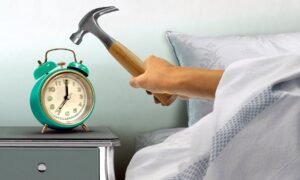
-
Snooze Button Abuse:
Hitting the snooze button repeatedly, though tempting, can disrupt your sleep cycle, which can lead to increased drowsiness like a bear with a headache.
While it may seem harmless, this habit undermines your sleep quality and can leave you feeling less rested and alert throughout the day.
-
Violation of Technology:
Your smartphone may have a more significant impact than you anticipated.
As it emits that blue light, it disrupts your body’s natural sleep-wake cycle, which impedes your ability to fall asleep easily.
This effect is like inviting a disruptive party into your bedroom, it hinders your relaxation and restfulness.
-
Late-Night Snacking Struggles:
Indulging in a late-night snack might seem satisfying, but it actually stimulates digestion, which would make it harder for your body to settle into sleep mode.
The resulting digestive activity can disrupt your ability to fall asleep and may lead to discomfort throughout the night.
-
Battling Bedtime Stress:
While it’s natural to feel stressed when facing life’s challenges, carrying those worries into bed creates a mental circus, with your thoughts racing high and your emotions performing some acrobatics.
This mental turbulence can prevent relaxation and make it difficult to achieve a restful sleep.
5. Caffeine Overdose:
That morning cup of coffee might be your best friend, but overindulging in caffeine can turn it into your worst enemy, hijacking your body’s natural sleep signals and leaving you wide-eyed like a startled owl at bedtime.
The Impact of Sleep Disorders on Men’s Physical Health

-
Cardiovascular Health
- Increased Risk of Heart Disease and Hypertension:
Sleep disorders like sleep apnea can wreak havoc on your heart health, which may increase risk of heart disease and high blood pressure.
It’s like putting your heart through a stress test every night, leaving it struggle for air and striving to keep up with the demands of your body.
- Link Between Sleep Apnea and Cardiovascular Issues:
If you can imagine your heart as the engine of a car, then imagine sleep apnea as a traffic jam in your airway, it causes your heart to work overtime just to keep the engine running smoothly.
This extra strain can lead to serious cardiovascular problems down the road, like heart attacks and strokes.
-
Hormonal Balance

- Effects on Testosterone Levels:
Sleep plays a critical role in regulating testosterone levels, which are essential for maintaining masculine vitality and overall health.
Consistent quality sleep ensures optimal hormone balance – it supports physiological functions just like a finely-tuned engine.
Conversely, inadequate sleep disrupts this delicate balance, leading to a decline in testosterone levels and a consequent decrease in energy and vitality.
- Impact on Reproductive Health:
Consider your reproductive system as a carefully tended garden, reliant on ample rest for optimal performance.
Sleep disorders have the potential to profoundly impact fertility, leading to reductions in sperm count and motility.
These disruptions can pose significant challenges to individuals seeking to conceive and may hinder their family planning goals.
-
Weight Management
- Relationship Between Sleep Deprivation and Weight Gain:
Ever notice how you crave junk food like a ravenous raccoon after a sleepless night?
That’s because sleep deprivation messes with your hunger hormones, making you reach for the nearest bag of chips like it’s your lifeline.
And to add insult to injury, it also slows down your metabolism, turning your body into a fat-storing machine faster than you can say “extra fries, please!”
- Hormonal Influences on Metabolism:
When sleep disorders disrupt your rest, they can throw off the delicate balance of hormones that regulate your metabolism.
Think of your metabolism as a powerful furnace, efficiently burning calories to keep you energized.
However, when sleep disturbances intervene, it’s like pouring water on that fiery furnace, slowing down the process and making it challenging to lose weight.
This sluggishness can leave you feeling tired and frustrated, hindering your efforts to maintain a healthy weight and lifestyle.
Mental Health Consequences

-
Mood Disorders
- Increased Risk of Depression and Anxiety:
Sleep disorders can turn your mind into a stormy sea, increasing the likelihood of depression and anxiety.
It’s like trying to navigate through a thick fog without a compass – it leaves you feeling lost and overwhelmed.
- Impaired Cognitive Function:
Imagine your brain as a computer running on low battery—it struggles to process information, making simple tasks feel like climbing Mount Everest.
Sleep disorders can leave your cognitive functions feeling sluggish and foggy – hinders your ability to think clearly and make sound decisions.
-
Impact on Daily Functioning and Productivity
- Decreased Focus and Concentration:
Ever tried to concentrate on a task with a marching band playing in your head? That’s what it feels like trying to focus with a sleep disorder.
Your mind wanders, your thoughts scatter like leaves in the wind, and staying on track becomes a Herculean feat.
- Impaired Decision-Making Abilities:
Sleep disorders can turn even the simplest decisions into a game of Russian roulette, leaving you second-guessing yourself at every turn.
It’s like trying to play chess with half your pieces missing – you’re left feeling unsure and vulnerable, making it harder to make informed choices and navigate life’s challenges.
Relationship between Sleep Disorders and Men’s Sexual Health

-
Erectile Dysfunction
- Influence of Sleep Disorders on Sexual Performance:
Sleep disorders can throw a wrench into your romantic life – it make it harder to rise to the occasion when the moment calls for it.
When sleep disorders interfere, it’s like trying to navigate a winding road with a flat tire—your body struggles to keep up, and it leaves you feeling deflated and unable to perform at your best when it matters most.
- Psychological and Physiological Factors:
Think of your sexual health like a well-tuned musical group, with each instrument playing in harmony.
However, when sleep disorders disrupt this symphony, it’s like having a broken piano key – the melody becomes disjointed, and the rhythm falters, which leaves you feeling out of tune and unable to perform at your best.
-
Libido and Sexual Desire
- Effects of Sleep Deprivation on Sex Drive:
Have you ever felt like your desire for intimacy disappears after a night of tossing and turning?
That’s because when you don’t get enough sleep, your body’s hormones get all mixed up, and you end up feeling as uninterested as a tired turtle.
It’s like trying to start a car without any gas—you might get a few coughs and splutters, but you’re not going anywhere fast.
- Importance of Quality Sleep for Sexual Health:
Picture your body as a well-oiled machine, with sleep as its essential fuel.
Without proper rest, your sexual health suffers, leaving you feeling as limp as a deflated balloon.
Quality sleep is like a magic potion for your libido, it boosts your energy levels and revive your desire for intimacy.
So, if you want to keep the fires burning in the bedroom, make sure to prioritize those Z’s.
Coping Strategies and Treatment Options for Sleep Disorders
- Stick to a regular bedtime and wake-up time every day.
- Make your bedroom comfortable and quiet for better sleep.
- Get a professional assessment to understand your sleep issues.
- Explore treatments like CPAP therapy or medications prescribed by a doctor.
- Practice techniques like deep breathing or meditation to relax before bed.
- Consider using herbal supplements or natural remedies to aid sleep, under guidance.
Conclusion:
To wrap it up, sleep disorders pose significant threats to men’s health; they affect physical well-being, mental clarity, and sexual vitality.
Recognizing the importance of quality sleep and seeking appropriate interventions is crucial.
By establishing consistent sleep routines, exploring medical treatments like CPAP therapy (Continuous Positive Airway Pressure Therapy), and integrating relaxation techniques, men can reclaim their health and vitality.
———————–
At Enthusiast Express, we’re here to support you on your journey to better sleep and overall wellness.
Through informative articles, expert advice, and quality products, we aim to provide the resources and encouragement you need to achieve a restful night’s sleep and live your best life.
Let’s prioritize sleep to unlock a healthier and a more energized tomorrow together.

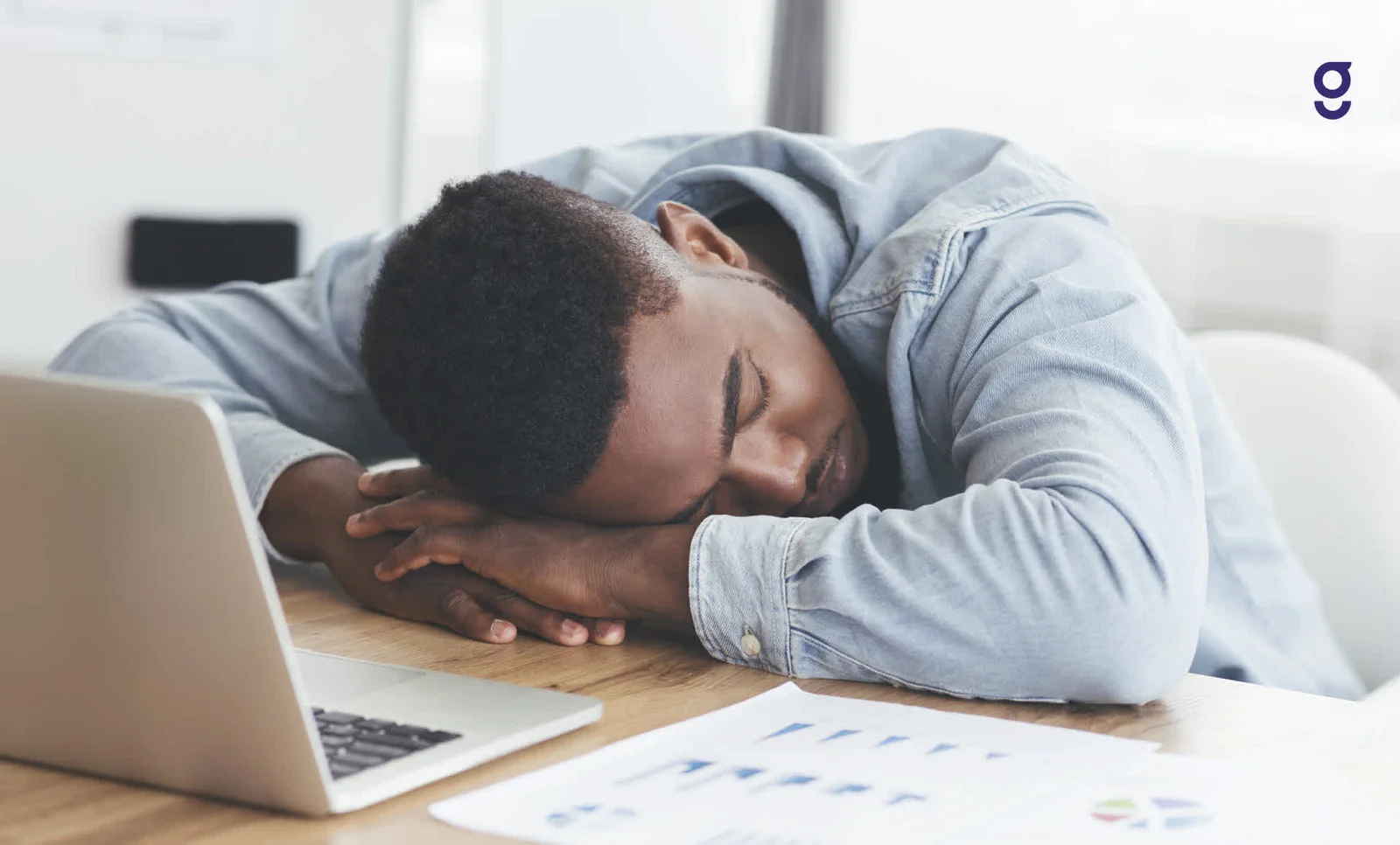

Appreciate you sharing, great post